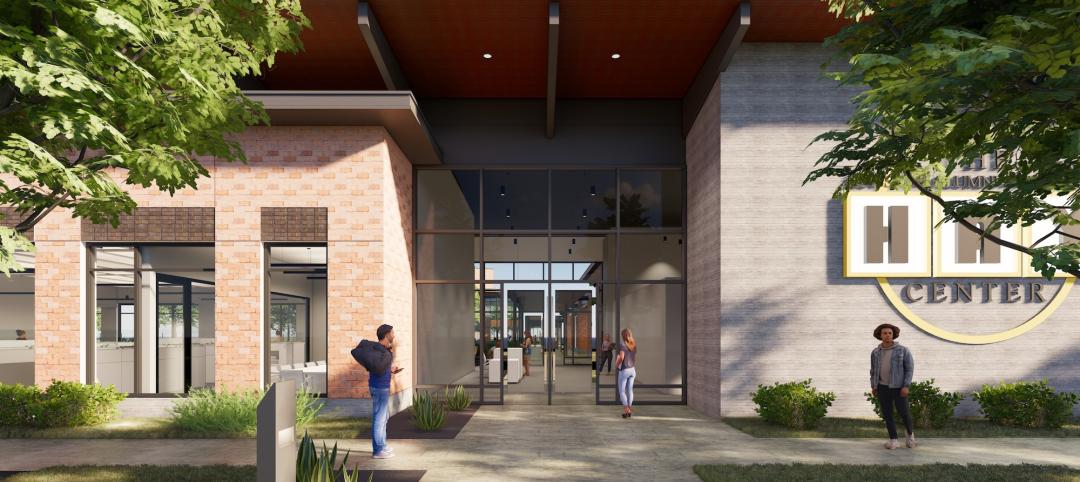The construction unemployment rate jumped to 18.8% in November as the sector lost another 5,000 jobs since October, according to an analysis of new federal employment data released today by the Associated General Contractors of America. The data indicates that the construction sector has suffered more than any other industry during the economic downturn, association officials said.
"The unemployment report shows construction still has not broken free of the recession that has gripped the industry since 2006," said Ken Simonson, the association's chief economist. "Other than the stimulus and other temporary federal programs, it has been a pretty bleak four yours for the industry."
Simonson noted that the construction industry has lost 2.1 million jobs since employment in the sector peaked in August 2006. He added that the sector has continued to lose jobs during the past twelve months even as overall private employment has picked up. Since November 2009, the industry has lost 117,000 jobs while the private sector added 1,088,000 jobs. The industry's 18.8% unemployment rate, not seasonally adjusted, also was the highest of any industry and roughly double the overall unemployment rate.
The only construction segment to add jobs in the past year has been heavy and civil engineering construction, which has benefitted from federal stimulus, military base realignment, and Gulf Coast hurricane-prevention projects, Simonson observed. Meanwhile, residential construction has lost 79,000 jobs over the past twelve months, while nonresidential specialty trade contractors and nonresidential building - the other two segments in the nonresidential category - have lost 62,000 jobs.
Association officials cautioned that the stimulus and other temporary federal programs would begin winding down in 2011, most likely before private, state or local demand for construction picks up. They urged Congress and the Administration to act on a series of long-delayed infrastructure bills for water, transportation and other infrastructure programs.
"We're hoping Congress doesn't cut off federal investments that are almost single-handedly keeping this industry together," said Stephen E. Sandherr, the association's chief executive office. "Even the Deficit Commission understands that the one thing we can't afford to do as a nation is neglect our infrastructure," Sandherr added, referring to the commission's proposal to raise the gas tax to fund transportation upgrades.
Related Stories
Affordable Housing | Jul 27, 2023
Houston to soon have 50 new residential units for youth leaving foster care
Houston will soon have 50 new residential units for youth leaving the foster care system and entering adulthood. The Houston Alumni and Youth (HAY) Center has broken ground on its 59,000-sf campus, with completion expected by July 2024. The HAY Center is a nonprofit program of Harris County Resources for Children and Adults and for foster youth ages 14-25 transitioning to adulthood in the Houston community.
Hotel Facilities | Jul 27, 2023
U.S. hotel construction pipeline remains steady with 5,572 projects in the works
The hotel construction pipeline grew incrementally in Q2 2023 as developers and franchise companies push through short-term challenges while envisioning long-term prospects, according to Lodging Econometrics.
Sustainability | Jul 27, 2023
USGBC warns against building energy code preemptions, rollbacks
In a recent editorial, the USGBC cited a growing number of U.S. state legislators who are “aiming to roll back building energy code standards and/or preempt local governments from advancing energy-efficient building codes.”
Resiliency | Jul 27, 2023
'Underground climate change' can damage building foundations, civil infrastructure
A phenomenon known as “underground climate change” can lead to damage of building foundations and civil infrastructure, according to a researcher at Northwestern University. When the ground gets hotter, it can expand and contract, causing foundations to move and sometimes crack.
Adaptive Reuse | Jul 27, 2023
Number of U.S. adaptive reuse projects jumps to 122,000 from 77,000
The number of adaptive reuse projects in the pipeline grew to a record 122,000 in 2023 from 77,000 registered last year, according to RentCafe’s annual Adaptive Reuse Report. Of the 122,000 apartments currently undergoing conversion, 45,000 are the result of office repurposing, representing 37% of the total, followed by hotels (23% of future projects).
Hotel Facilities | Jul 26, 2023
Hospitality building construction costs for 2023
Data from Gordian breaks down the average cost per square foot for 15-story hotels, restaurants, fast food restaurants, and movie theaters across 10 U.S. cities: Boston, Chicago, Las Vegas, Los Angeles, Miami, New Orleans, New York, Phoenix, Seattle, and Washington, D.C.
Sports and Recreational Facilities | Jul 26, 2023
10 ways public aquatic centers and recreation centers benefit community health
A new report from HMC Architects explores the critical role aquatic centers and recreation centers play in society and how they can make a lasting, positive impact on the people they serve.
Multifamily Housing | Jul 25, 2023
San Francisco seeks proposals for adaptive reuse of underutilized downtown office buildings
The City of San Francisco released a Request For Interest to identify office building conversions that city officials could help expedite with zoning changes, regulatory measures, and financial incentives.
Urban Planning | Jul 24, 2023
New York’s new ‘czar of public space’ ramps up pedestrian and bike-friendly projects
Having made considerable strides to make streets more accessible to pedestrians and bikers in recent years, New York City is continuing to build on that momentum. Ya-Ting Liu, the city’s first public realm officer, is shepherding $375 million in funding earmarked for projects intended to make the city more environmentally friendly and boost quality of life.
Market Data | Jul 24, 2023
Leading economists call for 2% increase in building construction spending in 2024
Following a 19.7% surge in spending for commercial, institutional, and industrial buildings in 2023, leading construction industry economists expect spending growth to come back to earth in 2024, according to the July 2023 AIA Consensus Construction Forecast Panel.
















